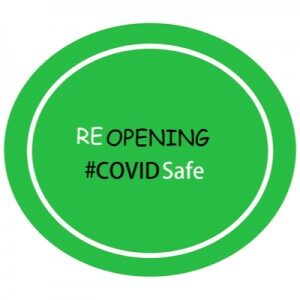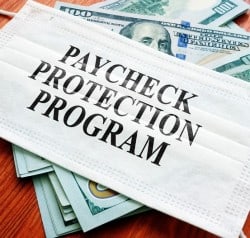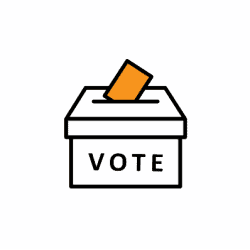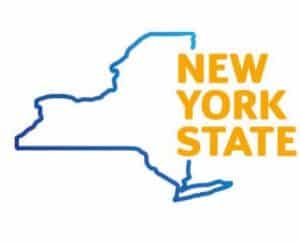What Governor Cuomo’s Executive Order–“New York on PAUSE”–means for your organization’s workforce and operations
I. Governor’s Executive Order
Effective Sunday, March 22, 2020 at 8 p.m., all businesses and nonprofit organizations were required to have all employees in New York staying home/working remotely due to the pandemic of COVID-19, the disease caused by the novel coronavirus,[1] except for those employees providing “essential services,”* as per an Executive Order from Governor Andrew Cuomo. All non-essential businesses and schools in New York State must remain closed. Additionally, all non-essential gatherings of any size for any reason are banned.[2] On Sunday, March 29th, Governor Cuomo extended all school and non-essential business closures to April 15th.
Empire State Development also issued guidance* identifying which types of for-profits businesses and non-profit organizations are considered to be providing “essential services” as per Governor Cuomo’s Executive Order and could remain open (other States should take note of the terms as well as you may be next). Exemptions from the order include: shipping, media, warehousing, grocery and food production, pharmacies, healthcare providers, utilities, banks and related financial institutions and any business with a single employee/occupant (i.e., gas station).
How Can I Seek an “Essential Function” Designation? Notably, certain businesses and nonprofits deemed “non-essential” may request a designation from NYS State to be designated an “essential function” by completing an online form at Empire State Development’s website or emailing: covid19designations@esd.ny.gov.
Note, however, that the following may not seek an “essential function” designation: Any business that only has a single occupant/employee (i.e. gas station) as that has already been deemed exempt and need not submit a request to be designated as an essential business; businesses ordered to close on Monday, March 15, 2020 under the restrictions on any gathering with 50 or more participants, including but not limited to, bars, restaurants, gyms, movie theaters, casinos, auditoriums, concerts, conferences, worship services, sporting events, and physical fitness centers.
Is There Any Government Guidance on the Executive Order?
Yes, Empire State Development has issued an FAQ for businesses and nonprofit organizations.
It includes answers to common questions (excerpted here) like:
QUESTION: If my business is determined to be an “Essential Business” are all employees permitted to work at the business location?
ANSWER: No. Only those employees that are needed to provide the products and services that are essential to provide such products or services are permitted to work at the business location. In addition, Essential Businesses are still required to utilize telecommuting or work from home procedures to the maximum extent possible. Those employees who do report to work must adhere to the requirements set forth in the Department of Health guidelines, which can be found at https://coronavirus.health.ny.gov/home.
QUESTION: What if my business is not essential, but a person must pick up the mail or perform a similar routine function each day?
ANSWER: A single person attending a non-essential closed business temporarily to perform a specific task is permitted so long as they will not be in contact with other people.
Further information for New Yorkers can be found at: https://esd.ny.gov/covid-19-help
New York State’s Office of Children and Family Services has also issued guidance to a variety of different categories of non-profit organizations during New York’s “Pause.” including nonprofit organizations providing social services, during New York’s “Pause.”
II. What Else Should Employers Consider in the Face of the “New York Pause?”
What If We Need to Close our Office and Lay off Our Employees; What Do We Do When We Lay off Employees?
A. NY Termination Requirements: In New York, when an organization terminates an employee, it must provide a written notice of termination containing the termination date and date any health insurance coverage so that the employee can file for unemployment insurance benefits, and provide COBRA paperwork.
B. WARN Acts: Some organizations will also need to consider New York’s Worker Adjustment and Retraining Notification Act (WARN). In fact, NYS Department of Labor has made clear on its website that an employer’s 90-day New York WARN notice obligations in the event of a “plant closing, mass layoff or covered reduction in work hours”– as defined by the regulations– are not suspended because of COVID-19. Where a covered organization is forced to close unexpectedly, it still must provide a WARN notice as soon as possible and identify the circumstances that required the closure. The federal WARN Act which applies to employers with 100 or more employees and requires 60 days’ advance notice may also be applicable depending on the particular facts.
C. Unemployment Insurance (UI) Benefits: There is no waiting period in New York for claiming unemployment insurance benefits related to COVID-19 (typically, there’s a 7-day waiting period after separation before filing for UI benefits). Additionally, the U.S. Department of Labor issued new guidance providing flexibility to States in administering their UI programs because of the COVID-19 outbreak. For example, federal law allows states to pay benefits where: (1) An employer temporarily ceases operations due to COVID-19, preventing employees from coming to work; (2) An individual is quarantined with the expectation of returning to work after the quarantine is over; and (3) An individual leaves employment due to a risk of exposure or infection or to care for a family member. In addition, federal law does not require an employee to quit in order to receive benefits due to the impact of COVID-19.
If We Reduce Our Full-Time Staff to Part-Time, May They Collect Unemployment Insurance?
Maybe. It will depend on how many hours they work and how much they are earning. New York State has a Shared Work Program for employers who may want to reduce the number of hours worked for employees but still allow those employees to be able to continue their health insurance benefits and collect unemployment insurance.
What Kinds of Things Should We Be Considering with Respect to Business Continuity and Logistics of Dealing with The Closure of Our Office During the “NY PAUSE”?
There are a whole host of issues—logistical and practical—to consider when shutting the office temporarily for an indefinite period of time and working remotely. Some include:
- Does our business continuity plan address contingencies for pandemics?
- What are alternative means of servicing clients?
- How will our budget need to be modified?
- Have we anticipated/mapped out different scenarios and consequences depending on longevity of closure by the Governor, and what, if any, staffing/personnel/restructuring changes need to be made, even if on a temporary basis, depending on how long the office shutdown is in place?
- Insurance/Financial Assistance: Do we have business interruption insurance or other insurance that will cover any losses? Do we need a line of credit from a bank, disaster relief loan, disaster grant (for nonprofits)?
- How will we process payroll, send out invoices, receive our mail (and any checks)?
- How will we access files if our landlord closes the building?
- How will we stay connected with our clients/stakeholders/donors?
- Will there be a rent suspension by landlords during this period we are unable to use our space due to the “NY Pause”?
- Remote working:
- how data will be kept secure with all of your employees working remotely: See tips here: Consider https://www.perlmanandperlman.com/covid-19-cyber-readiness-good-practices-remote-work/
- Implement and enforce remote work policy and employee agreement
- Implement timekeeping system to ensure nonexempt employees are tracking and reporting hours worked each day, and advance approval for overtime; prohibit off-the-clock work; consider whether to implement time-tracking software
- Determine whether worker’s compensation policy covers office workers working remotely
- Consider how productivity and creativity will be maintained with all staff working remotely and how you will keep employees not used to working remotely, motivated and focused; schedule regular video-conference sessions and other means to keep team connected.
- Consider if you need to postpone or cancel events and review force majeure provisions of your contracts with event hosts to determine rights under the contract. (See more here).
III. What Should New York Employers Do Now?
- Institute business contingency plans in view of the Governor’s “PAUSE”
- Review applicable insurance policies for coverage
- Implement temporary remote work-from-home policies (and employee agreements) (see our earlier blog on COVID-19 and the workplace for more on that topic)
- Consider short-term and long-term staffing plans, reduction of hours, layoffs, including preparing for staff absences due to NY’s COVID-19 Quarantine Leave Law and federal Families First Coronavirus Response Act
- Post mandatory FFCRA poster by April 1, 2020 in the workplace, through email and organization intranet for those working remotely. On March 25, 2020, the U.S. Department of Labor issued a Families First Coronavirus Response Act poster explaining employee paid sick leave and family leave rights and employer responsibilities under the law.
- Confer with your legal counsel to review updated policies and agreements and any actions you are planning to take with respect to your staff during this period to ensure they comply with these new laws as well as existing laws like WARN (and State mini-WARN statutes), FMLA, ADA, wage/hour laws, and laws prohibiting disability discrimination, sex and/or caregiver discrimination.
- Consider options for financial assistance being offered through various legislation, disaster relief loans and/or grants for nonprofits when needed.
You can subscribe to NYS’s website for updates on COVID-19 here and for NYC-specific guidance, you can check here.
If you have questions, need assistance determining whether you are an “essential business” in New York, need to prepare a temporary remote work policy or update your policies related to COVID-19, please contact Lisa Brauner, Esq., Head of Perlman & Perlman LLP’s Employment Law Department, 212-889-0575, lisa@perlmanandperlman.com. Our firm is here for you during this crisis and doing everything we can to support and guide you. (The above does not constitute legal advice and you should confer with your attorney for legal advice on your particular situation).
[1] As of the afternoon of March 29, 2020, in New York State–the pandemic’s epicenter in the United States, there were 59,513 confirmed COVID-19 cases and 965 deaths. New York now has the dubious distinction of having half of all COVID-19 confirmed cases in the U.S., and 5% of all cases worldwide. As of March 29th, there were 33,768 confirmed COVID-19 cases and at least 192 deaths in New York City alone. As of March 29th, in the U.S., there are 135, 502 confirmed COVID-19 cases and 2,384 COVID-19 related deaths. The CDC has now issued an advisory to NY, NJ and Connecticut residents not to travel domestically in light of the doubling of the U.S. death toll in just two days.
[2] Governor Cuomo’s Executive Order also:
- Bans all non-essential gatherings of individuals of any size for any reason;
- Enacts Matilda’s Law to protect New Yorkers age 70+ and those with compromised immune systems, requiring them to: Remain indoors, only go outside for solitary exercise; pre-screen all visitors by taking their temperature; wear a mask in the presence of others and stay at least 6 feet from others; not take public transportation unless urgent and absolutely necessary.
- Requires closing of all barbershops, hair salons, tattoo or piercing salons, nail salons, hair removal services and related personal care services, effective Saturday, March 21 at 8:00PM.
- Places a 90-day moratorium on evictions for residential and commercial tenants.
- Closes all casinos, gyms, theaters, retail shopping malls, amusement parks and bowling alleys until further notice. Bars and restaurants are closed, but takeout can be ordered during the period of closure.
- Perlman & Perlmanhttps://perlmanandperlman.com/author/nancyisrael/
- Perlman & Perlmanhttps://perlmanandperlman.com/author/nancyisrael/
- Perlman & Perlmanhttps://perlmanandperlman.com/author/nancyisrael/
- Perlman & Perlmanhttps://perlmanandperlman.com/author/nancyisrael/














